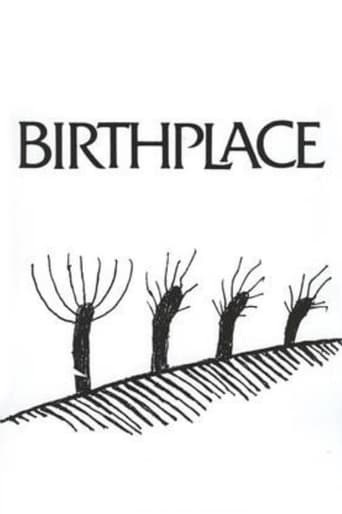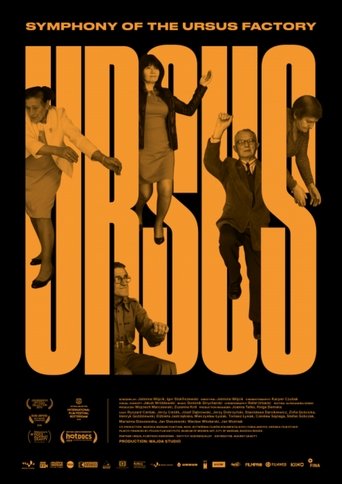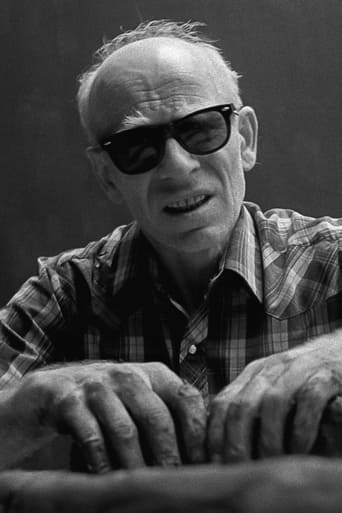Studio Filmowe Kronika
Birthplace 1992
Henryk Greenberg is a Polish-born American who lost much of his family in the Holocaust. Certain of the location where his father and younger brother were murdered, Greenberg returns to find most of his former neighbors predictably claiming foggy memories at first; but soon their recollections come more easily.
Symphony of the Ursus Factory 2019
The Ursus factory once covered 170 hectares and employed 20,000 workers, producing 100 tractors a day. Now, its buildings stand derelict and empty; half have already been demolished by investors with new plans. The symphony of mechanical sounds and gestures that is gradually built up throughout the film is produced by former factory employees. Proud of their factory, they reminisce about the huge numbers of people and the parties they had. They were a community, passionate about supporting agriculture through their factory. The Ursus tractor was well-known, not only in Poland but throughout the world.
The Prison Guard 1990
The protagonist of the film "Klawisz" is Jan Doliński, a former guard of the Lublin Castle prison, who held his post during the German occupation and remained in it almost until the prison was liquidated in 1954. He was dismissed because he did not want to join the Polish United Workers' Party.
Voices From Afar 1992
A documentary record of memories of Poles exiled to Kazakhstan. The description of harsh living conditions, terror, hunger and overwork is illustrated with archive photographs and contemporary shots of Kazakh wilderness and towns, where traces of the past regime are still visible.
Thou Shalt Not Kill 1991
Józef Gębski's film is a documentary reconstruction of the crime committed by NKVD officers against Polish officers imprisoned in Starobielsk and Kharkov in 1940. Accounts of historians and prosecutors are juxtaposed with the testimony of the then heads of the central and regional NKVD board.
Silence, Darkness 1999
The film was made at the Polish Sculpture Center in Oransko, during sculpture workshops for deaf-blind people. The camera shows the process of creation, which is closely connected with getting to know oneself. It is accompanied by hesitation, anger and joy.
Tonia i jej dzieci 2011
Trwoga 1993
Collective heroes of the film: men, women from across the eastern border. Belarusians, Russians. In Poland they found a chance for a better existence. Many have education, often higher education, but they work on construction sites. Ten hours a day at a time. They are treated as second- or third-class people. They are required to do more than Polish workers, and paid much less. They accept this. They have no choice.
The Smoke Only 1990
A documentary tackling the problem of air pollution in Walbrzych. The film shows the effects of excessive and ill-considered industrialization of the region: the sky covered with smoke, mining waste heaps piling up, burnt buildings, and, above all, the residents exposed to smog from an early age.
Zawsze wierni 1994
Wrocław. Imiona miasta 2002
The burner bursts with flame, hot air fills the shell, the aerostat soars. In the gondola of the balloon - Norman Davies. He is not looking for strong impressions, inspiration or beautiful views, but for the right perspective. For a historian, according to the film's protagonist, "should distance himself from his object of research. One must not be too close, too emotionally involved. That's why I will look at Wroclaw from a certain height..." Such a perception of Breslau has been sorely lacking in the distant and near past, especially in the past, the twentieth century - the century in which unleashed nationalisms resulted in the bloodiest spasms in the history of mankind.
W służbie orła białego 1994
The film tells the story of pilots, American volunteers who fought in the Polish-Bolshevik war.
Dziennik pisany pod wulkanem 1995
A kind of film essay on the life and work of Gustav Herling-Grudzinski. The writer's story about his life is interspersed with documentary footage shot in Naples, where he has lived for thirty years (hence the title), and in Warsaw, during a visit to Poland in 1994.
Pokolenia 2017
The history of Poland told through fragments of movies produced by Wytwórnia Filmów Fabularnych.
Film znaleziony w Katyniu 1992
An account of Halina Borek's long 52-year search for the grave of her bestially murdered father. Her recollections are accompanied by excerpts from an original film shot during the exhumation of the remains of Polish officers. The film is narrated by archaeologist Zdzislaw Sawicki, who was one of the first to uncover the secrets of the Katyn graves.
Love Demands a Sacrifice 1991
Documentary film about Polish airmen who fought in the British Air Force during World War II. The narrative frame of the documentary consists of excerpts from a mass in one of the churches in London in honour of the airmen. The middle part of the film is a series of interviews with veterans.
The Happy Life of Benedykt Jerzy Dorys 1990
Made just before the protagonist's death, Maria Kwiatkowska's film is a documentary portrait of one of the most outstanding Polish fashion and portrait photographers, Benedykt Jerzy Dorys. The co-founder of the Union of Polish Art Photographers talks about his artistic path and his personal life.
In the Shadow of the Palace 1991
Russians working at the bazaar near the Palace of Culture and Science in Warsaw talk about their everyday life.







